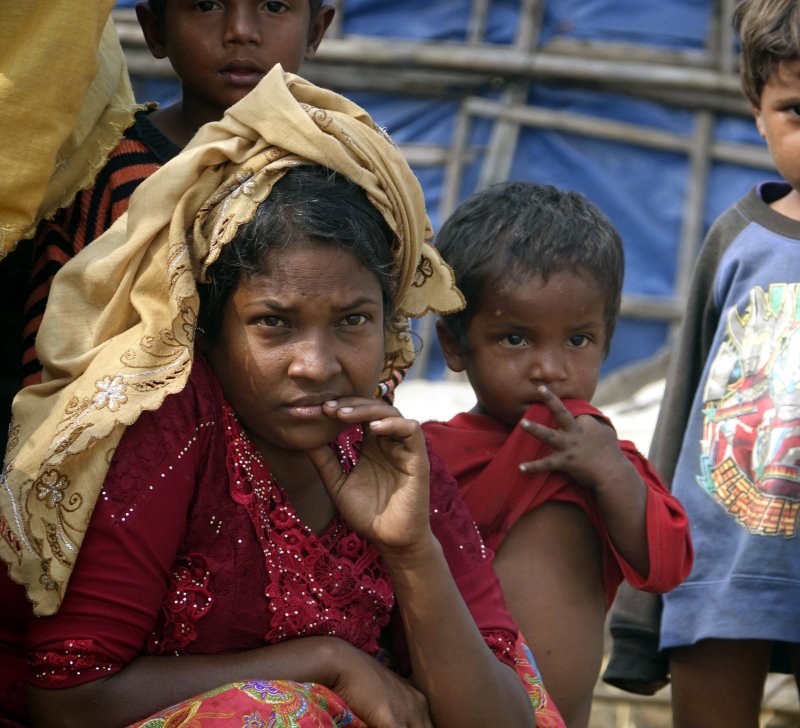Rohingya refugees sit near a makeshift house in Maungdaw in western Myanmar. File Photo by Nyunt Win/EPA
Jan. 16 (UPI) -- Bangladesh and Myanmar on Tuesday finalized a two-year timeline to repatriate hundreds of thousands of Rohingya refugees who fled from persecution and violence.
The Rohingya Muslim minority will begin to leave Bangladesh, with Myanmar agreeing to accept 1,500 a week with the goal of taking back more than 700,000 refugees within two years.
"We have signed a very positive treaty. After several discussions, Myanmar has agreed to complete the repatriation process preferably within two years from the day it commences," Sufiur Rahman, Bangladesh's ambassador to Myanmar, said.
"We have proposed to repatriate 15,000 Rohingyas every week but they [Myanmar] did not agree to it,"
he added."They [Myanmar] have taken some preparations for the Rohingyas. They have agreed to take back 300 Rohingyas per day. Some 1,500 Rohingyas will be sent back in a week."
The number of Rohingya sent back every week will increase after three months, Rahman said.
The "physical arrangement" was decided at the first meeting of the Joint Working Group on the return of the displaced Rohingyas from Rakhine State. The meeting was held on Monday and Tuesday in the city of Naypyidaw.
Under the agreement, returnees would be received initially in Myanmar in two reception centers and be temporarily sheltered while officials rebuild the houses for them to move into.
Many displaced Rohingya in Bangladesh, however, remain concerned about returning to Myanmar.
"We are still not clear about what agreement was signed," Sirajul Mostofa, a community leader in a Rohingya camp in Cox's Bazaar, said.
"Our first priority is, they have to grant us citizenship as Rohingyas. Secondly, they have to give back our lands. Thirdly, our security must be ensured internationally. Otherwise, this is not good for us."
A wave of Rohingya migrants began exiting Myanmar last year when military attacks led to widespread violence in Rahkine State -- including allegations of rape, torture and killings.
Last week, Myanmar's military admitted to killing 10 Rohingya Muslims found in a mass grave















